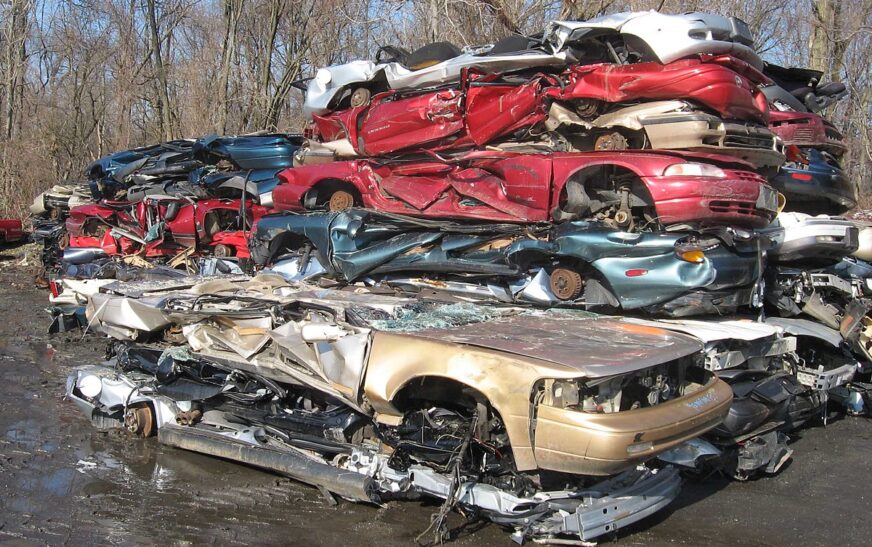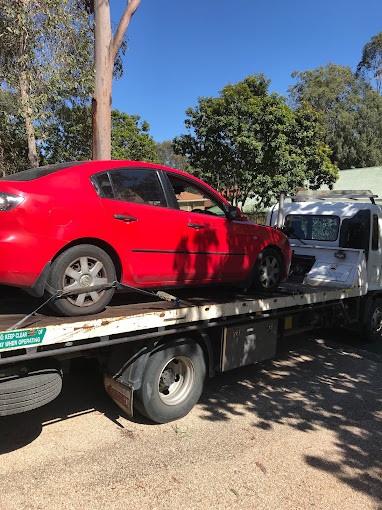The value of scrap metal is influenced by various economic factors, making it a dynamic and unpredictable market. For anyone involved in recycling, manufacturing, or even selling an old vehicle, understanding how scrap metal pricing works is essential. The economics of scrap metal involves more than just supply and demand; it includes everything from global economic trends to technological advancements in recycling. This article will explore the key factors affecting scrap metal pricing, the economic role of the recycling industry, and how individuals and businesses can make informed decisions in this field.
Key Factors Influencing Scrap Metal Prices
Several core factors influence the price of scrap metal. Each factor impacts prices differently, leading to fluctuations that can affect profitability for businesses and individuals who trade in scrap metal. Understanding these factors can help sellers and buyers alike navigate the complexities of the scrap metal market.
1. Supply and Demand Dynamics
Supply and demand are foundational principles in any economic market, and the scrap metal industry is no exception. When demand for new products is high, so is the demand for raw materials, including recycled metals. For example, the construction and automotive industries heavily rely on metals like steel and aluminum, driving up prices when production needs are high. Conversely, when there is an oversupply of scrap metal, prices tend to drop as buyers have more purchasing options.
2. Economic Conditions and Global Market Trends
The global economy plays a significant role in determining scrap metal prices. During economic downturns, such as recessions, the demand for products that use metal often decreases, causing a decline in scrap metal prices. Conversely, in times of economic growth, higher demand for raw materials drives prices up. Additionally, the value of certain currencies affects metal pricing, particularly for exporters. For instance, when the U.S. dollar strengthens, exporting scrap metal becomes less profitable, potentially leading to a decrease in prices domestically.
3. Commodity Market Prices
Scrap metal is closely tied to the commodity market, where metals like copper, aluminum, and steel are traded internationally. Prices for these metals are often influenced by speculation, global supply issues, and political tensions. For example, if copper prices increase on the commodities market due to a mining strike in a major producing country, the value of scrap copper will also rise as it becomes a more desirable resource.
4. Cost of Energy and Transportation
The cost of energy and transportation significantly impacts scrap metal prices. Processing and recycling metals require a substantial amount of energy, and high fuel or electricity prices raise the overall cost of recycling. Transportation costs also factor into the equation, as scrap metal must be moved from collection sites to processing facilities. Rising fuel prices can therefore make scrap metal trading less profitable, potentially lowering prices offered to sellers.
5. Technological Advancements in Recycling
Innovations in recycling technology can influence scrap metal prices by improving efficiency and reducing processing costs. For example, advancements in sorting technologies and equipment allow for faster and more precise separation of metals, leading to higher-quality recycled products. As recycling processes become more cost-effective, scrap yards can offer better prices while maintaining profitability, thus positively impacting the industry.
Types of Scrap Metal and Their Value
Different types of scrap metals hold varying levels of value based on their composition, demand, and ease of recycling. Understanding these distinctions can be valuable for individuals and businesses looking to sell scrap metal.
1. Ferrous Metals
Ferrous metals, primarily composed of iron, include materials such as steel and cast iron. These metals are widely used in construction, manufacturing, and automotive industries. Though they are commonly recycled, ferrous metals tend to fetch lower prices compared to non-ferrous metals because of their abundance. However, the demand for steel and iron from industries like construction often boosts prices, especially during periods of high economic activity.
2. Non-Ferrous Metals
Non-ferrous metals, such as copper, aluminum, and brass, are generally more valuable than ferrous metals. Copper, in particular, is highly sought after due to its conductivity and resistance to corrosion, making it ideal for electrical wiring and plumbing. Aluminum, another valuable non-ferrous metal, is used in various industries, including automotive and aerospace. The recycling of non-ferrous metals is economically beneficial as it conserves resources and requires less energy compared to producing new metals.
3. Precious Metals
Precious metals, like gold, silver, and platinum, are occasionally found in scrap, particularly in electronic waste. These metals have high economic value due to their scarcity and applications in technology and jewelry. The presence of precious metals in scrap can significantly increase its value, though extracting these metals often requires specialized recycling processes.
Seasonal and Regional Variations in Scrap Metal Pricing
The scrap metal market also experiences seasonal and regional fluctuations. For example, in colder months, construction projects often slow down, leading to reduced demand for metals and a potential drop in prices. On the other hand, in regions where manufacturing and automotive industries are concentrated, demand for recycled metals may be higher, resulting in better pricing for scrap.
Additionally, certain events like natural disasters can disrupt metal production, leading to increased demand for scrap as a substitute. These variations emphasize the importance of timing and location when trading in the scrap metal market.
Environmental and Economic Benefits of Scrap Metal Recycling
The recycling of scrap metal not only generates income but also contributes positively to the environment. Recycling reduces the need for mining new metals, which helps conserve natural resources and reduces the environmental impact associated with mining activities. Additionally, recycling scrap metal saves energy, as recycling metal requires significantly less energy than producing new metal from raw materials. This process helps lower greenhouse gas emissions, contributing to a cleaner and more sustainable environment.
The economic benefits extend beyond individuals selling scrap metal. The recycling industry creates employment opportunities, supports local economies, and provides materials that contribute to various manufacturing industries. By fostering a circular economy, the scrap metal industry plays an essential role in creating sustainable and profitable business practices.
The Role of Cash for Cars Programs in the Scrap Metal Market
One aspect of the scrap metal industry that has gained traction in recent years is the cash for cars program. Programs like “Total Car Removal” in Sydney are designed to provide a service that both supports recycling and helps consumers by purchasing their unwanted vehicles for recycling purposes. These programs not only enable individuals to earn from their old cars but also ensure that the vehicles are processed in an environmentally responsible manner. Total Car Removal, for example, offers services to dismantle, recycle, and safely dispose of vehicles, all while contributing valuable metals to the recycling industry. As a result, services like these can be instrumental in increasing scrap metal availability while also supporting sustainable practices. For those seeking the best car removal Sydney option, Total Car Removal provides a reliable solution that promotes a cleaner environment.
The Future of Scrap Metal Pricing
As global demand for metals continues to rise, the scrap metal industry is expected to play an even more significant role in meeting this demand. Emerging industries, such as renewable energy and electric vehicles, rely heavily on metals like copper, aluminum, and lithium. This shift suggests that the demand for scrap metal will remain high in the future, especially as these industries expand.
Also visit: https://totalcarremoval.com.au/car-removal-honda/
Environmental regulations may also affect scrap metal pricing by increasing demand for recycled materials. As governments impose stricter regulations on emissions and mining, industries will likely turn to recycled metals as a way to meet sustainability goals. This shift toward environmental responsibility could stabilize or increase scrap metal prices, benefiting those in the recycling industry.
Conclusion
The economics of scrap metal pricing is a complex interplay of supply, demand, global trends, and technological advancements. Understanding the various factors that influence scrap metal prices can help individuals and businesses make more informed decisions in the recycling and scrap metal market. From the role of cash for cars programs to the environmental benefits of metal recycling, the industry presents valuable opportunities for both economic gain and environmental stewardship.
As global awareness of sustainability grows, the scrap metal industry stands poised to play an even greater role in supporting both environmental and economic goals. By reducing waste, conserving resources, and creating economic value, the scrap metal market contributes to a circular economy that benefits communities, businesses, and the planet.
Find more insightful blogs here.









